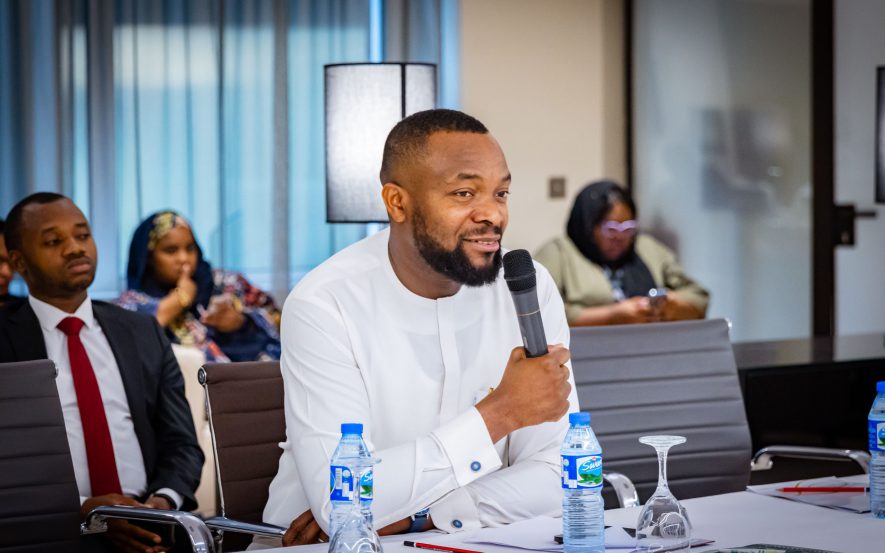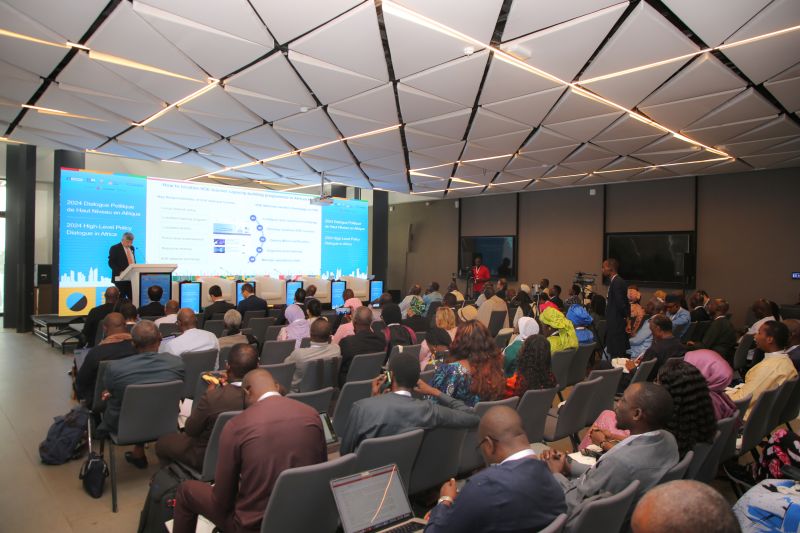Minister Bosun Tijani seeks comprehensive mapping of country’s emerging AI ecosystem to strengthen support for local innovation
ABUJA, Nigeria — Dr. Bosun Tijani, Nigeria’s Minister of Communications, Innovation and Digital Economy, has issued a call to the nation’s artificial intelligence startups to share critical data that will help the government better understand and support the country’s burgeoning AI landscape.
In a post on X earlier this week, Tijani described Nigeria’s AI ecosystem as “young but full of promise,” emphasizing that each emerging startup holds the potential to transform how Nigerians live, work, and address uniquely local challenges.
“I’m therefore calling on builders nurturing solutions rooted in our realities — to share information that will allow us better understand the landscape and support innovation in our ecosystem,” the minister wrote, directing interested parties to register at the National Centre for Artificial Intelligence and Robotics (NCAIR) portal.
Building a Comprehensive AI Strategy
The call for data comes as part of Nigeria’s broader push to position itself as a major player in the global AI landscape. Since taking office in 2023, Tijani, a former tech entrepreneur who co-founded the influential Co-Creation Hub, has made AI advancement a centerpiece of his ministerial agenda.
The government has already taken several concrete steps toward this goal. In April 2024, Nigeria launched its National AI Strategy, developed in collaboration with 150 domestic experts to ensure responsible development of the country’s AI ecosystem. The strategy aims to elevate Nigeria as a top 10 location for AI model training and talent globally.
“We would be failing our people and future generations if we ignore artificial intelligence because these technologies will shape what you think, how you think, and how you operate,” Tijani stated at a recent TechCabal event in Lagos.
Addressing Infrastructure and Talent Gaps
Critics have questioned whether Nigeria’s AI ambitions are premature given persistent infrastructure challenges, including electricity shortages and limited digital connectivity. However, Tijani maintains that focusing on AI is not about ignoring current problems but about preparing for the future.
“If you’re going to be visionary, you can’t just focus on the weaker problems,” the minister responded to critics, adding that Nigeria has a significant economic opportunity in digitizing data required by large language models, which currently lack substantial context on Africa.
To support this vision, the government has launched several initiatives:
- The 3 Million Technical Talent (3MTT) programme, which aims to train 3 million Nigerians in technical skills by 2027. To date, nearly 300,000 Nigerians have been trained through a combination of digital platforms and 220 in-person learning centers.
- A ₦100 million AI Fund launched in partnership with Google in September 2024, providing equity-free grants to 10 Nigerian AI startups.
- The DeepTech_Ready Upskilling programme, launched in January, to train young Nigerians specifically in data science and AI.
- Infrastructure expansion, including plans to install 90,000 kilometers of fiber-optic cables with World Bank funding, which would more than triple the country’s current capacity.
Local AI Solutions Gaining Traction
Several Nigerian startups are already making strides in developing AI solutions tailored to local needs. Awarri, a Lagos-based startup, is building Nigeria’s first government-backed large language model trained on five low-resource Nigerian languages and accented English. Intron Health has developed voice-to-text AI that understands Nigerian accents, helping doctors reduce documentation time in understaffed hospitals.
The government has set ambitious targets, including creating over 50,000 jobs in the AI industry and helping startups raise $5 billion in yearly funding by 2027.
International Recognition
Tijani’s efforts have not gone unnoticed internationally. TIME magazine recently named him one of the 100 Most Influential People in AI for 2025, recognizing his work in bringing a startup mentality to government and his focus on talent development.
“We may not have the compute and infrastructure, but we do have the talent,” Tijani told TIME. “There’s an opportunity to strengthen the quality of AI by helping to digitize our own reality.”
As Nigeria continues to chart its course in the AI revolution, the success of Tijani’s latest call for data sharing may prove crucial in shaping policies and support structures that can nurture the country’s AI ecosystem from its nascent stages to global competitiveness.
Interested AI startups can register and share their information through the NCAIR platform at https://ncair.nitda.gov.ng/nigeria-ai-startups/.




